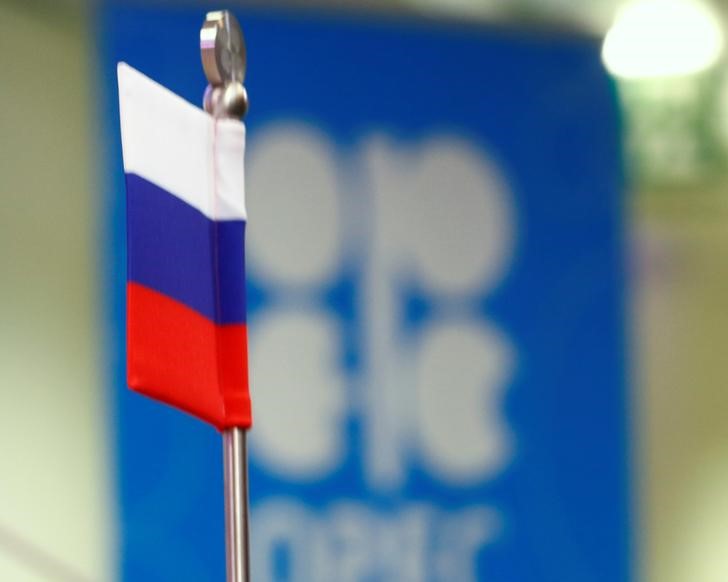
Investing.com — The U.S. will release its official labor market report for May, and there is a clear risk of an upside surprise after ADP’s better-than-expected numbers on Wednesday (even if that was neutered, in turn, by yesterday’s jobless claims figures). Brent oil futures are back above $41 after reports of a breakthrough in talks with overproducers. The ECB’s latest booster shot of stimulus is driving bond spreads down and stocks up, while underwhelming reports from Broadcom (NASDAQ:AVGO) and Slack may weigh on tech stocks. Here’s what you need to know in financial markets on Friday, June 5th.
1. It’s payrolls day.
The third of this week’s updates from the U.S. labor market arrives at 8:30 AM ET with the publication of the Labor Department’s monthly report. Nonfarm payrolls are expected to have fallen by 8 million in the month to mid-May, a gentler drop than the 20.5 million seen in April but still a number that points to immeasurable hardship across the country. The jobless rate is expected to rise to a postwar high of 19.7%.
The risk is for an upside surprise – ADP’s assessment of private payrolls on Wednesday suggested a much gentler decline of barely 2 million. However, the latest instalment of weekly jobless claims numbers on Thursday was a reminder that the trend is turning more slowly than politicians – and stock markets – would like to believe.
2. Euro, Stoxx hit three-month highs after ECB action
European assets are enjoying their moment in the sun, after the European Central Bank padded its emergency bond-buying fund by another 600 billion euros ($680 billion) at its meeting on Thursday.
The euro earlier hit $1.1384, its highest level against the dollar since March 10, but is consolidating now after rallying for 10 days straight since the European Commission announced its own 750 billion program aimed at helping the EU economy recover next year.
Sovereign yield spreads have tightened to their narrowest since March in the wake of the dual initiative by Brussels and Frankfurt, something that is allowing chronically beaten-down bank stocks to lead the current rally.
Earlier Thursday, the German Bundesbank said the stimulus package announced by Berlin on Wednesday would soften the economy’s contraction this year by over 1% of GDP. It still expects a decline of over 7% for 2020, while the ECB sees the euro zone shrinking by 8.7%.
3. OPEC-Russia agrees in principle on deal extension
Crude oil prices jumped again as the so-called OPEC+ group of producers agreed in principle to extend the current level of output restraint by one month, that is, until the end of July.
The group will meet virtually on Saturday to rubber-stamp the agreement, which came after Iraq and Nigeria agreed to improve their compliance with the deal agreed in April at the depths of the collapse in global demand.
By 6:30 AM ET, U.S. crude futures were up 2.2% at $38.24 a barrel, while the global benchmark Brent was up 3.0% at $41.20 a barrel, the first time it’s been above $41 since March 7.
4. Stocks set to open higher on oil news
U.S. stock markets are set to open higher, having turned positive on the back of the news coming out of OPEC. That would cap a remarkably resilient week for stocks, which are now close to recovering pre-pandemic levels as stimulus money continues to find its way into financial assets.
By 6:30 AM (1030 GMT), the Dow Jones 30 futures contract was up 283 points or 1.1%, while the S&P 500 futures contract was up 0.7% and the Nasdaq 100 futures contract was up 0.3%.
The dollar index, by contrast, appeared to be bottoming out around 96.8 after losing 1.8% over the course of the week, while gold futures were down 1.1% at $1,708.30 a troy ounce.
5. Slack, Broadcom put a question mark over tech valuations
A note of caution could be seen in tech stocks this morning after two disappointing updates from prominent names after the bell on Thursday.
Chipmaker Broadcom warned that it expected the next couple of quarters to be overshadowed by supply chain constraints and a “substantial reset in wireless”, also hinting that it expects the launch of the next generation of iPhones (for which it makes chips) to be delayed.
Separately, messaging service Slack said it had failed to register any acceleration in revenue growth in the last three months, despite perceptions that it was well positioned to profit from the boom in remote working. Slack’s figures stood in sharp contrast to those released by Zoom Video earlier in the week.
In lighter vein, Tesla (NASDAQ:TSLA) founder Elon Musk called for Amazon.com (NASDAQ:AMZN) to be broken up after it restricted distribution of a book on the Covid-19 pandemic.


